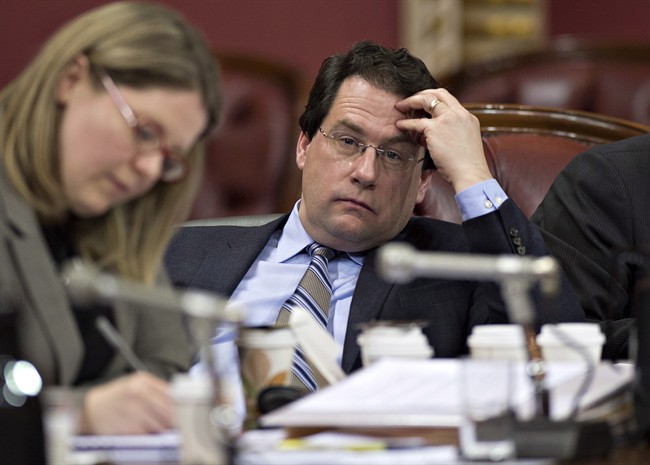QUEBEC – The minister behind Quebec’s controversial values charter says it’s a moderate document that offers tailor-made secularism for his province.

Bernard Drainville made the comments Tuesday in Quebec City just before public hearings began into the Parti Quebecois’ minority-accommodation plan.
“Even if people are against the charter, if they have the impression they have been listened to and respected, they will be more inclined to respect it when it becomes law.”
The legislation would forbid public employees from wearing visible religious symbols including hijabs, turbans, kippas and larger-than-average crucifixes.
Drainville reiterated that the minority PQ government will not back down on the proposed bill, saying he’s convinced it’s a necessity.
READ MORE: On the agenda: Week 1 of the charter hearings
“It’s a bill for Quebecers that reflects what we are as a society,” he said before the first of two months worth of public hearings, sessions that could feature testimony from as many as 200 individuals and groups.
“It’s a moderate, well-balanced bill and the kind of state secularism that we are proposing is going to be a state secularism that is unique to the Quebec society.”
The Quebec government argues the charter would shield the province from what it describes as encroaching fundamentalism and says it would provide protection against gender discrimination.
Polls have suggested the proposal is relatively popular in Quebec, but opposition to the plan has been vocal.

Get breaking National news
READ MORE: Support for Quebec Charter of Values holds steady as concern grows
Critics of Bill 60 say the legislation is unnecessary and infringes on personal freedom.
They have also accused the PQ of focusing on identity issues as a way to avoid talking about Quebec’s economic situation.
The plan has fuelled heated debates in the province since it was unveiled last year and some opponents believe the PQ could use identity as a wedge issue in the next provincial election campaign, which some observers predict could come as early as the spring.
Premier Pauline Marois campaigned during the 2012 election on an emotionally charged pledge to introduce a “Charter of Secularism,” notably aimed at restricting Islamic headwear in public institutions.
Drainville, meanwhile, said Tuesday that his party has worked very hard on the charter over the past year.
He referred to the public hearings as a first step toward its eventual adoption.
“I am convinced we need to pass the charter, but we can’t cut any corners,” said Drainville, the minister responsible for democratic institutions.
“Even if people are against the charter, if they have the impression they have been listened to and respected, they will be more inclined to respect it when it becomes law.”







Comments